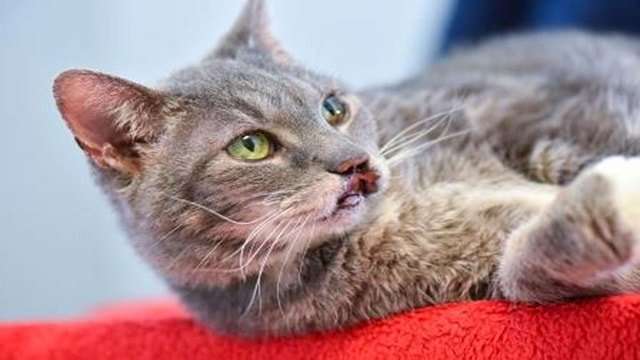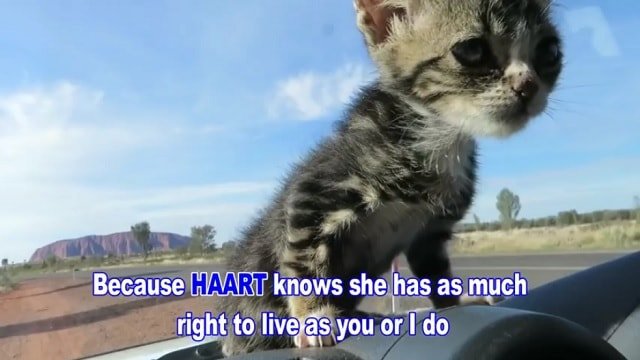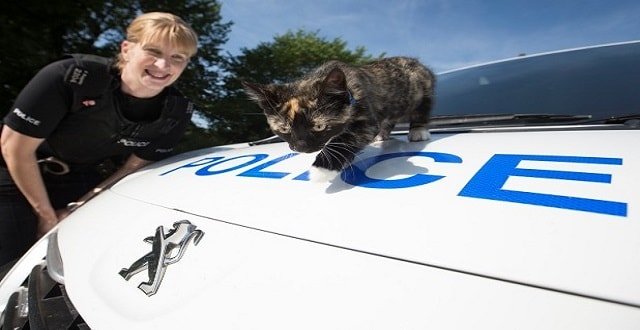LITTLE ROCK, ARKANSAS – They roam the streets, they scavenge for food and they aren’t the most trusting of humans.
Although feral cats may not be ideal to adopt as household pets, the Little Rock Animal Village insists they could be perfect workers for a business or rural property.The Animal Village recently started a “working cats” program, in which it traps, sterilizes, vaccinates and microchips feral felines and then adopts them out for free to businesses or farms in need of a solution to unwanted vermin.
Tammy and Keith Langley live on 7 acres right in England. They adopted a total of five cats through the program Friday.”They are going to keep the rodent population down as well as the snake population,” Tammy Langley stated. “They are excellent hunters, especially the females.”When adopting one of the cats, the property owner or business has to agree to provide shelter, food, clean water and veterinary care to the animal.The city suggests “working cats” for construction companies, barns, farms, warehouses and also other businesses that need rodent control.Healthy feral cats that aren’t suitable for normal adoption will surely be considered for the new program.In the past five years, the Animal Village has had to euthanize more than 1,000 feral cats. Feral cats are the offspring of pets who have been abandoned by their owners. These cats aren’t domesticated. They usually avoid humans, spend most daylight hours hiding, and eat whatever scraps or small animals they can find.
Little Rock has had an overpopulation of feral cats in the more recent years and has been considering ways to correct that.

PHOTO BY ARKANSAS DEMOCRAT-GAZETTE / MITCHELL PE MASILUN
Karen Oxner of Little Rock, a volunteer for the Little Rock Animal Village, places feral cats in cages Friday on a farm in England. The relocation of the cats is part of the Animal Village’s “working cats” pilot program, which places the cats in new homes or businesses where they can help control pests.
Animal Village Director Tracy Roark previously proposed a trap, neuter and release program which would keep the cats in a colony and would prevent reproduction.
There was a bit of pushback to that idea, and the city is still discussing it. The working-cat program is a different way the city can respond to the overpopulation issue, he said.
“This is an adoption program, and it’s an awareness program,” Roark stated. “We really want these cats to find their place. We’ve got this influx of feral cats coming in, and over 20 years we’ve just not found anything that is positive for them to go. So I think it’s time we start looking at a positive way to get them out there, and plus to fuel the need for people who want a working cat.”
Those interested in adopting a working cat may call the Animal Village at (501) 376-3067.
The idea of a working-cat program was created and developed in Los Angeles in 1999 by Melya Kaplan, an animal activist.
It started after she was alerted of a rodent problem at a flower market she frequented. The owner had laid out poison and attempted other methods, but absolutely nothing got rid of the rats. Kaplan suggested dropping off three cats to rid the venue of its vermin problem and promised to take them back if they didn’t get rid of the rats.
Seventeen years later, the market now has s 15 cats and no rats.
Kaplan said to the Los Angeles Times last year that once rodents smell a cat on the prowl, they leave.
“It’s not anything new. People used to have barn cats or church cats to keep out rodents,” Kaplan stated to the newspaper. “We just brought [the idea] to the city, and it seems to be really working.”
“We’re saving cats and helping people,” she explained, calling it a win-win situation.
The Little Rock Animal Village delivered just five feral cats to the Langleys’ England property Friday afternoon.
The cats are delivered and arrive in cages. Roark recommends they be housed and fed in the cages for just about two weeks so they learn that the property is their new home and that they can return there for food and water.
Tammy Langley stated that often when people offer up kittens and she tells them she needs a working cat, the people don’t understand and would prefer that the kittens go to homes that will have them as pets.
“A lot of people don’t understand that cats are going to do what they naturally have the instinct to do, and that is to catch birds, mice, snakes, whatever. We reap the benefit of that because it keeps everything away from the house,” she mentioned. “If we don’t have working cats, we are just going to be overrun with mice and snakes.”
Donations from the Friends of the Animal Village group help to pay for the sterilization of the cats that are adopted through the working-cat program.
In addition to the cats delivered to England, another four were in the process of going to a rural property in Pulaski County. The city began advertising the new program this past Thursday.
“There’s just such a need for this program,” Langley stated. “I think as the word gets out more, they’ll have more people participate. It not only helps us, but it gives the animals a chance, too, because otherwise they would be euthanized. I think it’s just a win-win all the way around.”









